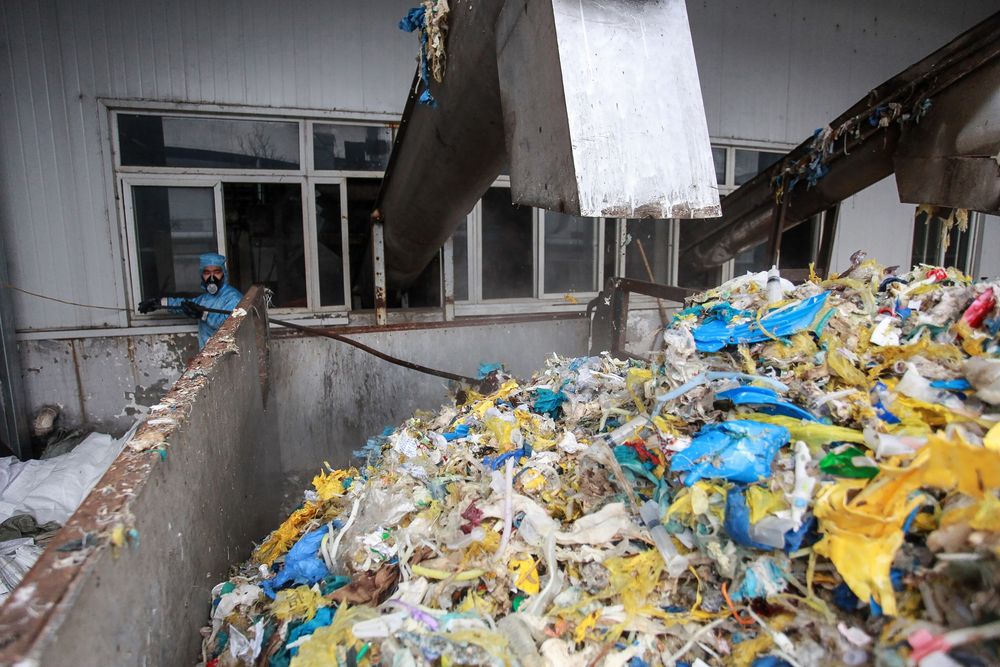Over these past few months as the COVID-19 pandemic has raged throughout the world, humans have experienced a societal shift never seen before. As governments enact social distancing measures and stay-at-home orders, unemployment rates have faced a steep incline accompanied with complications for different groups, particularly women. These reactionary policies to an environmental crisis have resulted in several problematic circumstances that directly affect women, both within the household as well as in public life.
Continue reading “Why are women more likely to be impacted by coronavirus?”The coronavirus pandemic is just what Mother Earth needed
The coronavirus is the invisible enemy and does not discriminate against anyone. The United States has been affected by this virus economically, politically, and socially. However, in all the gloom and doom, the pandemic did bring some good to the world. The pandemic is actually helping our environment! This pandemic has forced people to stay at home, and not create as many carbon emissions. Additionally, people are not creating as much waste.
Continue reading “The coronavirus pandemic is just what Mother Earth needed”Sustainability from micro and macro perspectives during the COVID-19 outbreak
While it may be true that some families, including mine, are using less resources and producing less waste as a result, it is imperative to look at the big picture when considering how the COVID-19 outbreak has impacted sustainability and waste. Rapid and unprecedented changes in consumption and travel behaviors around the world have taken place. While it is impossible to know how much this will impact sustainability indicators such as carbon emissions and waste in the future, we are already seeing impacts on sustainability indicators now.
Continue reading “Sustainability from micro and macro perspectives during the COVID-19 outbreak”Coronavirus and sustainable smart consumption
During the past month the coronavirus pandemic has caused billions of people to reset their daily lives and has given people the opportunity to begin living a more sustainable life. In the midst of this pandemic, we have seen shortages in products such as toilet paper, paper towels, meat and extremely important items like masks, gloves, and sanitizers. These shortages are caused by people buying too much of these products that they do not necessarily need, causing others their basic necessities.
Continue reading “Coronavirus and sustainable smart consumption”Grocery stores like never before: life with COVID-19
Many people across the world are now required to live in unprecedented ways. I’ve never seen anything like this in my life. With the ever-present threat of COVID-19 looming over populations across the world, it makes sense that life would be different for everyone. As this global pandemic spreads, much of the United States is under lockdown along with other countries around the world. With this lockdown people have been advised to self-isolate and only travel outside their homes for necessities. This “state of crisis” has people stocking up on foods and other essentials such as toilet paper. This raises the question, are people overreacting, and perhaps buying in too large of quantities? If people continue reacting to this pandemic the way they initially have things will only get worse for the general public.
Continue reading “Grocery stores like never before: life with COVID-19”COVID-19 drives global hunger as the pandemic threatens food aid distribution
Hundreds of millions of people will go hungry tonight. There is more than enough food produced to feed the world but it isn’t being distributed to those who need it. The industrialization of our agricultural system has led to massive inequities in both food production and consumption. These problems have only been exacerbated by the current global pandemic and the stress it’s bringing to the system. To remedy these discrepancies, there must be a massive restructuring of our global conceptualization of agriculture and our food supply chains.
Continue reading “COVID-19 drives global hunger as the pandemic threatens food aid distribution”Pandemic highlights the unsustainable nature of our globalized economy
What lessons has the COVID-19 pandemic taught us? On the smallest level, washing our hands and maintaining good hygiene are now in the front of our minds. I’m sure many of us are now more grateful for the lifestyles we were able to live before this calamity happened and we have had to isolate. Lessons can also be drawn from how our country and society as a whole have reacted to and handled the pandemic.
Continue reading “Pandemic highlights the unsustainable nature of our globalized economy”Time for change: COVID-19’s fracturing of the global supply chain
The COVID-19 pandemic has spread to almost every nation impacting the trade of resources and commodities. Supply chains and distribution channels have been damaged or forced to change because of the virus. There have been shortages of goods including food, protective equipment, and toilet paper due to supply issues. The world has been faced with the effects of a globalized economy in which manufacturing has been exported to regions afar. Vital supplies for a pandemic such as masks and gloves are only produced in certain regions of the globe, making the response to such diseases more challenging. A globalized trade system directly increases environmental issues related to the production of greenhouse gases from transportation. Lessons must be learned from this pandemic in order to attempt to fix the structural trade problems that threaten our environment and national security.
Continue reading “Time for change: COVID-19’s fracturing of the global supply chain”America’s super crop and COVID-19 : corn and coronavirus domestication lead to an increase in waste
Coronavirus and corn. How on earth would anyone make a connection between the two entities? Well, it is a lot easier than you thought. But how? One is a product that dominates the country’s supermarkets and American’s consumption on the daily. The other : a deadly disease that has swept through the world and put everything on pause. At first glance, the two have almost no correlation to one another. But if they are anything like each other, we are in for a world of hurt.
Continue reading “America’s super crop and COVID-19 : corn and coronavirus domestication lead to an increase in waste”Strained food systems exposed by COVID-19
Food and capitalism. It’s not something we consider every time we shop at the grocery store. Nor do we consider the farm in which each item we place in our cart came from. But now more than ever, the connection between food and capitalism is evident as the coronavirus threatens workers, strains our food system, and keeps food off the shelves.
Continue reading “Strained food systems exposed by COVID-19”
